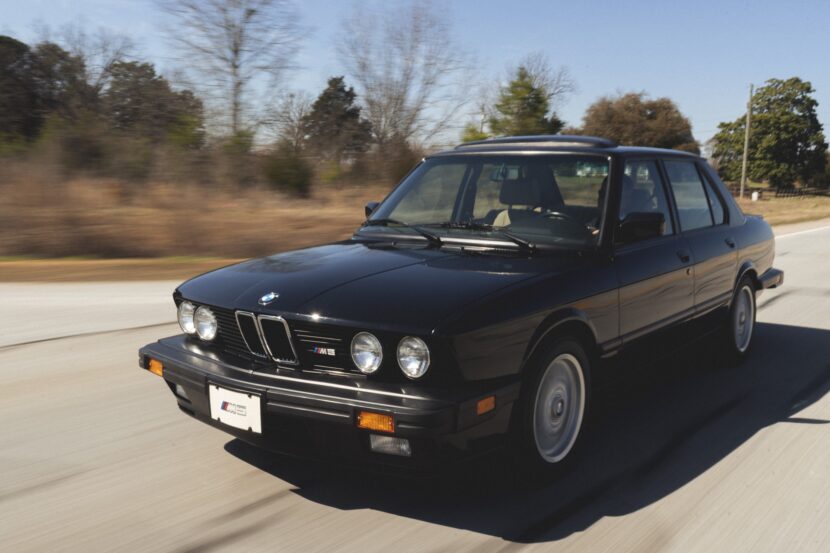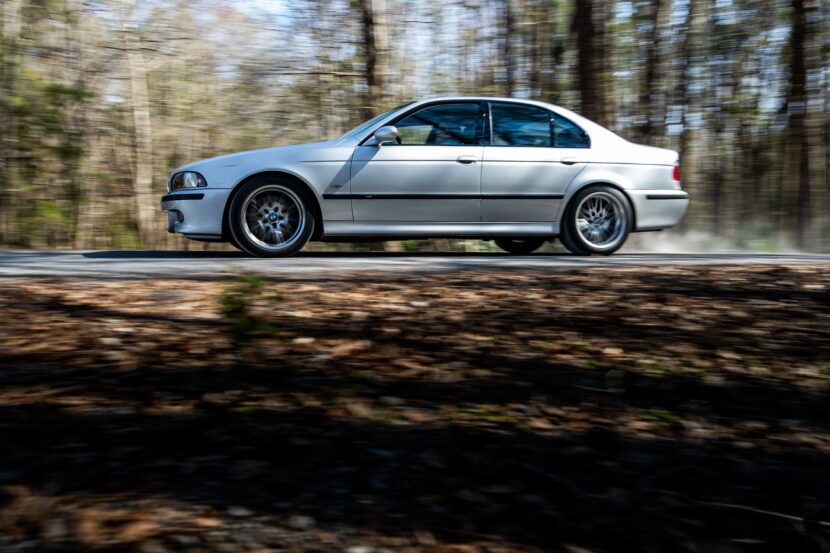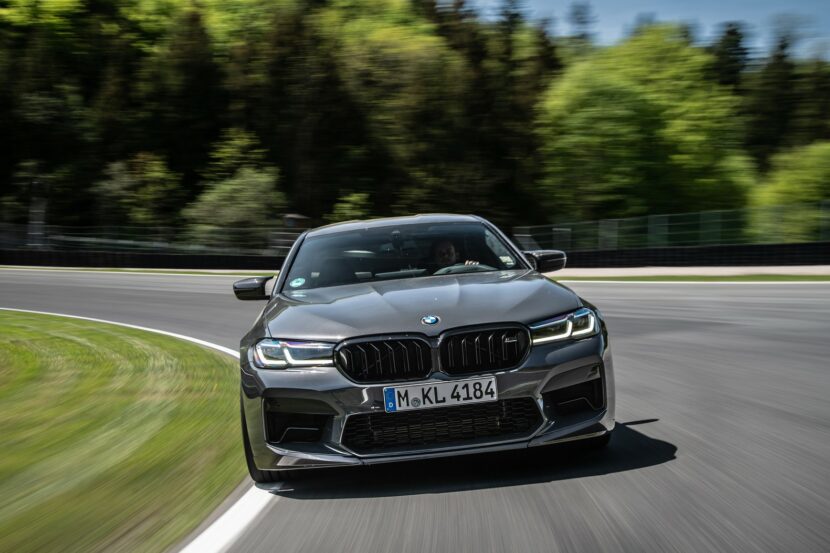The brand new BMW M5 G90 is setting a brand new benchmark for BMW, not solely when it comes to energy, but in addition weight. Regardless of being probably the most highly effective M5 ever made, and the primary ever plug-in hybrid mannequin, the G90 M5 can also be the heaviest: 5,390 kilos (2,445 kilograms), marking a major improve from its predecessors. Due to this fact, this raises a vital query: Has the M5 sacrificed an excessive amount of within the identify of progress? On this article, we check out all of the BMW M5 generations and the way their weight modified over time.
The Early Years: Light-weight Agility


The unique BMW M5 E28, launched in 1985, was a revelation. Weighing a svelte 3,153 kilos (1,430 kilograms), it set a brand new commonplace for sport sedans. Its comparatively low weight contributed to its agile dealing with and spectacular efficiency, traits that grew to become synonymous with the M5 badge. This stability of energy and lightness was a core a part of the M5’s attraction, making it a driver’s automobile by way of and thru.
Incremental Beneficial properties: The E34 and E39


Because the M5 advanced by way of the E34 and E39 generations, weight regularly elevated. The E34 M5, at 3,638 kilos (1,650 kilograms), and the E39 M5, at 3,737 kilos (1,695 kilograms), nonetheless managed to keep up an affordable stability. These fashions supplied extra energy and refinement, justifying the slight weight acquire. The E39, particularly, is commonly celebrated as the head of M5 improvement, putting a perfect stability between efficiency, luxurious, and driving pleasure. It’s additionally, arguably, the very best wanting E39 M5 ever made.
The V10 Period: E60’s Distinctive Id


The E60 M5, with its high-revving V10 engine, pushed the boundaries additional. Weighing in at 3,869 kilos (1,755 kilograms), it was a heavier automobile, however the engine’s character and the automobile’s total dynamics saved it participating. The E60 was a daring step with its V10 5.0 liter and a clunky SMG transmission. Nonetheless, it additionally marked the start of a pattern the place added weight was turning into extra noticeable.
Turbocharged Energy: The F10 and F90


The F10 and F90 generations embraced turbocharging, considerably boosting energy output. The F10 tipped the scales at 4,123 kilos (1,870 kilograms), whereas the F90 weighed 4,112 kilos (1,865 kilograms). These fashions launched all-wheel drive and a number of technological developments, additional enhancing their efficiency capabilities. But, the rising weight raised issues about whether or not the M5 was straying too removed from its light-weight roots.
The G90: A New Period of Extra?


The 2025 G90 M5, with its plug-in hybrid powertrain, represents a brand new period of efficiency and effectivity. Nonetheless, at 5,390 kilos (2,445 kilograms), it’s considerably heavier than any of its predecessors. This weight acquire is essentially because of the hybrid system, which, whereas delivering spectacular energy and effectivity, provides vital heft. The query that arises is whether or not this trade-off is actually within the spirit of the M5 lineage. We are going to discover out extra in October when the primary press drives come on-line.
A Historic Weight Comparability of the BMW M5
BMW M5 E28 (1985–1988)
- Curb Weight: 3,153 lbs (1,430 kg)
- Energy: 286 hp
BMW M5 E34 (1988–1995)
- Curb Weight: 3,638 lbs (1,650 kg)
- Energy: 340 hp
BMW M5 E39 (1998–2003)
- Curb Weight: 3,737 lbs (1,695 kg)
- Energy: 400 hp
BMW M5 E60 (2005–2010)
- Curb Weight: 3,869 lbs (1,755 kg)
- Energy: 507 hp
BMW M5 F10 (2011–2016)
- Curb Weight: 4,123 lbs (1,870 kg)
- Energy: 560 hp
BMW M5 F90 (2017–2023)
- Curb Weight: 4,112 lbs (1,865 kg)
- Energy: 600 hp
BMW M5 G90 (2025)
- Curb Weight: 5,390 lbs (2,445 kg)
- Energy: 717 hp


